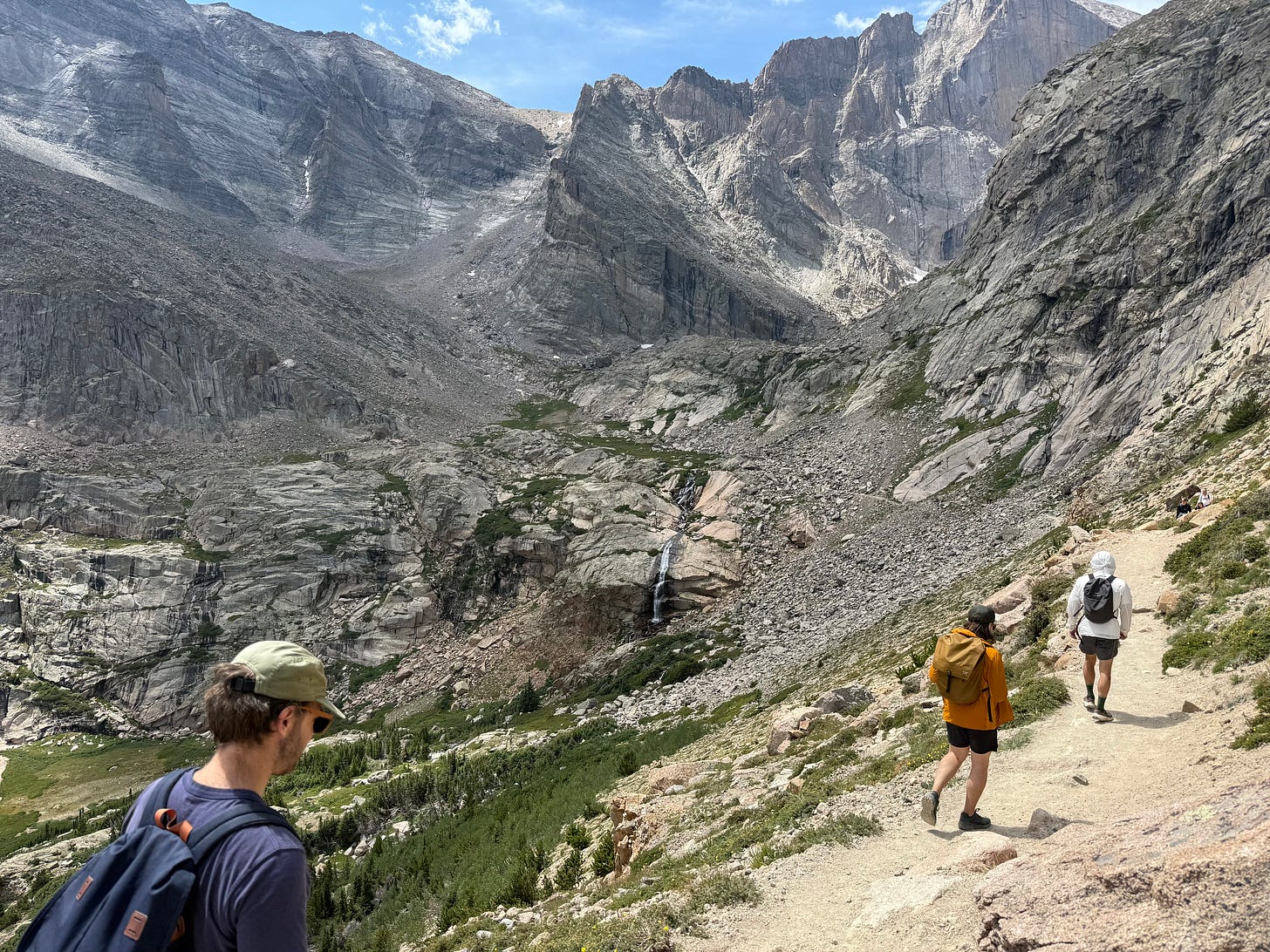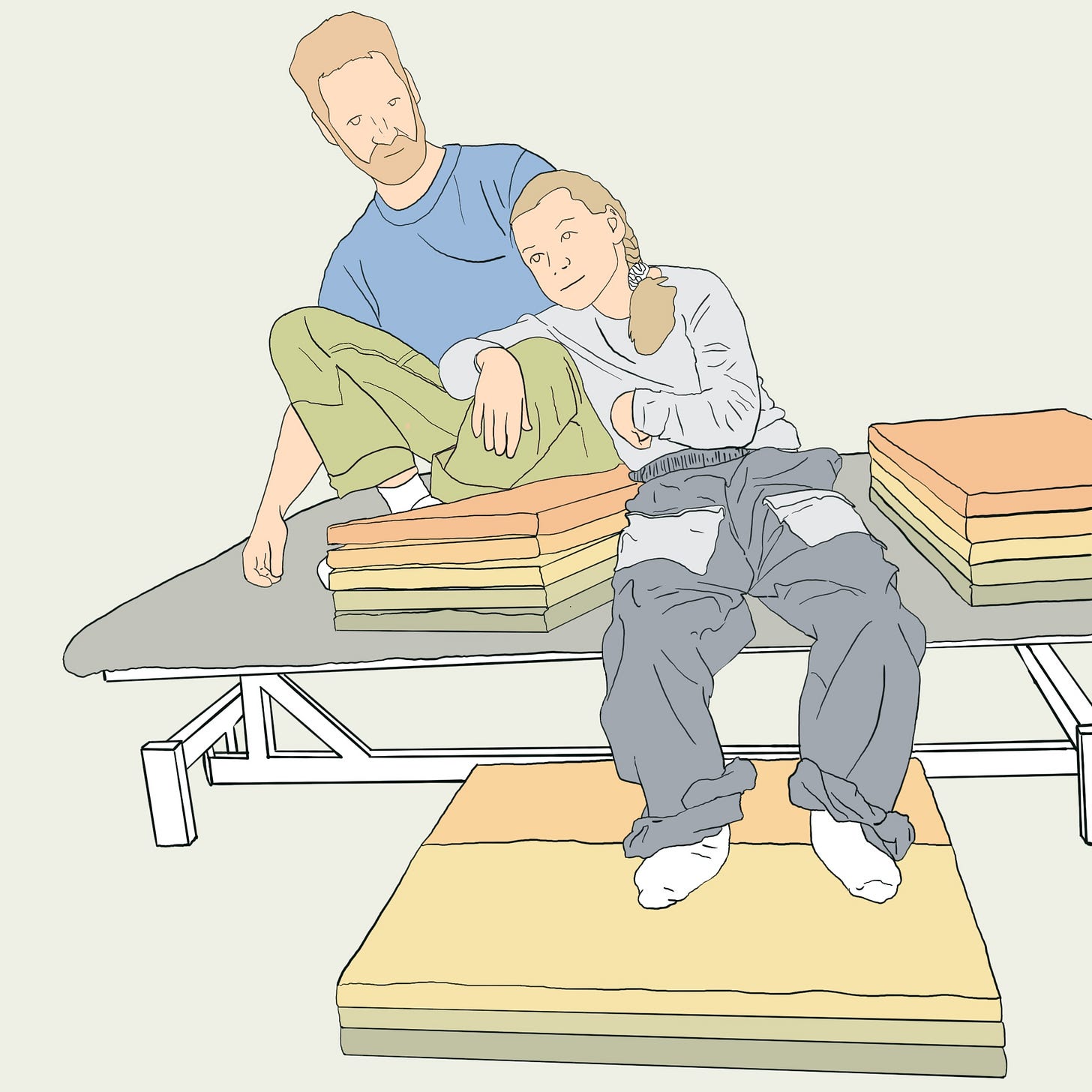Why can't I just relax?
Last weekend I went on a four hour alpine hike with three friends from high school, and I got worked. Trying to keep up with them, I found myself deeply tired, coming down the mountain with an aching knee. What was frustrating was, in spite of my Feldenkrais training, when I tried to relax and make inner adjustments to control my knee pain, I couldn't do it. My knee kept hurting and whatever below-the-radar muscle was pulling on my knee kept pulling. Self-doubt started saying, "Why the fuck do I spend so many hours rolling around on the floor doing feldenkrais if I can't use any of that awareness now?"
It was one of those moments when I wished I could "just relax," but it was impossible.
The problem with muscular tension we can't control is, it’s an automatic brain event we’re doing to ourselves. And it’s a perceptual problem, like we can’t perceive what’s happening. If we realized what we were doing to make the pain, we would stop, but we’re in trouble because we can't feel what we're doing. My knee hurts, but “I'm not doing that,” but if I'm not doing that, who is?
This is the same thing I see with the kids I work with. When there’s a brain injury, the involuntary muscular tension is called spasticity - high-tone they don't know how to stop. Whenever they’re doing spasticity, that’s the best they've figured out so far, but the truth is they're not accurately perceiving or feeling their own spastic activity.
As humans, our ability to auto-pilot is a blessing and a curse. What’s important to remember, though, is everything we do automatically now we learned at some point in the past. For example, even though all our deep postural systems operate mostly outside conscious awareness now, that’s only because we had a many years long apprenticeship as children. For years, movement and coordination were the main things we focused on every day, which is how we automated an entire repertoire of movement fundamentals that now just work. So that’s good automatic. Bad automatic is when, whatever we learned in the past, we can’t stop doing now. Our use-to-be-good automatic isn’t appropriate for a new situation. Like the movement patterns I use when sitting at my computer writing - I should know how to stop doing those when I'm hiking up a mountain.
When I'm working with kids, I'm always thinking: how can I influence automatic, unconscious processes? That’s the job. The goal isn't to have conscious control over everything. In the mountains, I wish I could've just gone up and down, having a nice conversation with my friends, taking in the scenery without any knee pain ever coming up. But sometimes there’s old automatic stuff that’s not useful right now, and it grabs my attention because I can’t turn it off.
Understanding my own experience of fatigue and painful compensation softens my heart for these kids. It's such a human situation to have the automatic parts of your life get in the way of doing what you want. The name of the game is learning. We need to know how to let the deeper, automatic parts of us reconfigure when they need to.





a lovely story!